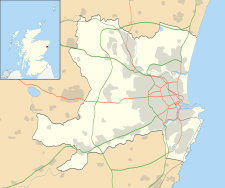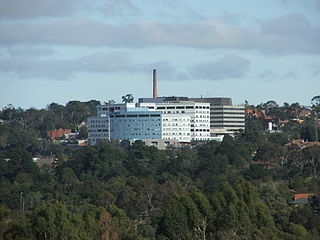
Mercy Hospital for Women, is based in Heidelberg adjacent to the Austin Hospital. The hospital offers obstetric, gynaecological and neonatal services and has one of only four neonatal intensive care units in Victoria. The Neonatal Intensive Care Unit is co-located with the Special Care Nursery and collectively they care for some of Victoria's most unwell babies. The hospital was opened in 1934.
Liverpool Women's NHS Foundation Trust runs Liverpool Women's Hospital, a major obstetrics, gynaecology and neonatology research hospital in Liverpool, England. It is one of several specialist hospitals located within the Liverpool City Region; alongside Alder Hey Children's Hospital, Liverpool Heart and Chest Hospital, the Walton Centre, Mersey Regional Burns and Plastic Surgery Unit, and Clatterbridge Cancer Centre.

Marie-Louise Lachapelle was a French midwife, head of obstetrics at the Hôtel-Dieu, the oldest hospital in Paris. She published textbooks about women's bodies, gynecology, and obstetrics. She argued against forceps deliveries and wrote Pratique des accouchements, long a standard obstetric text, which promoted natural deliveries. Lachapelle is generally regarded as the mother of modern obstetrics.
Foresterhill is an area of Aberdeen, Scotland. It is the site of the city's main hospitals, as well as the medical school and medical science departments of the University of Aberdeen. It is the largest hospital complex in Europe.
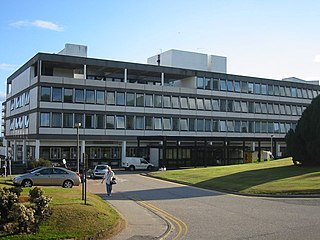
Aberdeen Royal Infirmary is the largest hospital in the Grampian area, located on the Foresterhill site in Aberdeen, Scotland. ARI is a teaching hospital with around 900 inpatient beds, offering tertiary care for a population of over 600,000 across the north of Scotland. It offers all medical specialities with the exception of heart and liver transplants. It is managed by NHS Grampian.

NHS Grampian is an NHS board which forms one of the fourteen regional health boards of NHS Scotland. It is responsible for proving health and social care services to a population of over 500,000 people living in Aberdeen, Aberdeenshire and Moray.
Aberdeen University School of Medicine, Medical Sciences & Nutrition contains the Medical School and Dental School at the University of Aberdeen in Scotland. It also provides training and carries out research in medical sciences, nutrition, public health, dentistry, health sciences, physician associate studies at BSc, MSc, and PhD levels. The current school was formed from the merger of the former School of Medicine & Dentistry, School of Medical Sciences, and the Rowett Institute of Nutrition.
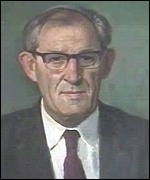
Sir Dugald Baird FRCOG was a British medical doctor and a professor of obstetrics and gynaecology. Baird was most notable and influential in calling for the liberalising of abortion. In his delivery of the Sandoz lecture in November 1961, titled the Fifth Freedom, he advocated for freedom from the tyranny of fertility.
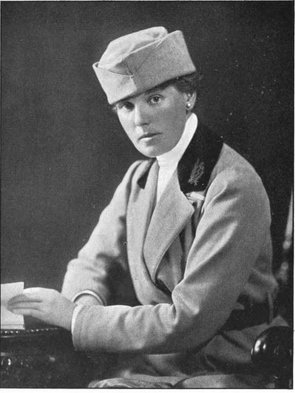
Dame Anne Louise McIlroy, known as Louise McIlroy, was a distinguished and honoured Irish-born British physician, specialising in obstetrics and gynaecology. She was both the first woman to be awarded a Doctor of Medicine (MD) degree and to register as a research student at the University of Glasgow. She was also the first woman medical professor in the United Kingdom.

Roxburghe House is a specialist palliative care unit which is situated near Foresterhill, Aberdeen, Scotland. It is managed by NHS Grampian.
Aberdeen Medico-Chirurgical Society is a society for medical practitioners in the North East of Scotland.

The Suttie Centre is a purpose-built training centre on the Foresterhill hospital campus in Aberdeen.
Jerusha Jacob Jhirad FRCOG, MBE was an Indian physician.
Shrewsbury and Telford Hospital NHS Trust is the main provider of hospital services for Shropshire, Telford and Wrekin and North Powys. It runs the Royal Shrewsbury Hospital, the Princess Royal Hospital in Telford, Oswestry Maternity Unit, and Wrekin Community Clinic, Euston House, Telford, in Shropshire, England. It is one of a small number of English NHS Trusts which takes patients from over the border in Wales.
David Paintin Hon FFSRH MB ChB FRCOG was a British doctor and an emeritus reader in obstetrics and gynaecology at the University of London. He was a former chair of the Birth Control Trust and worked on the campaign to pass the 1967 Abortion Act. David Paintin died on 30 March 2019.
Matilda Deans "May" Baird, was a Scottish doctor and social pioneer. She was a town councillor in Aberdeen, established the first free family planning there and later was the first woman to hold the position of Chair of a regional hospital board. She was National Governor of the BBC from 1965–1971.
Ian MacGillivray was a Scottish doctor who was a professor of Obstetrics and Gynaecology at the University of Aberdeen and president of the International Society for Twin Studies.

Charles Richard Whitfield FRCOG, FRCP(G) was a Northern Irish obstetrician and gynaecologist who was a pioneer of maternal-fetal (perinatal) medicine. His primary interest was in fetal medicine, a branch of obstetrics and gynaecology that focuses on the assessment of the development, growth and health of the baby in the womb. He was also an early proponent of subspecialisation within the fields of obstetrics and gynaecology, a practice that is common today.

Ernest Chalmers Fahmy FRCSEd, FRCOG was a Scottish obstetrician and gynaecologist. Shortly after qualifying in medicine, he played for the Scotland international rugby team on four occasions. He became an obstetrician and gynaecologist in Edinburgh and was a founder member of the British College of Obstetricians and Gynaecologists. He served as president of the Edinburgh Obstetrical Society.
Joyce Baird was a Scottish diabetes clinical and academic researcher, internationally cited for her work in both laboratory and clinical settings. Baird created the Metabolic Unit at the Western General Hospital, Edinburgh and established a model of patient care that allowed those with endocrine disorders to monitor and treat themselves without supervision, and was organised in 'family friendly' hours. Baird was Vice President of the European Association for the Study of Diabetes. A new 'Baird Family Hospital' is opening in Aberdeen, Scotland in 2021, named for Joyce Baird, her parents and her brother's contribution to UK medicine.

